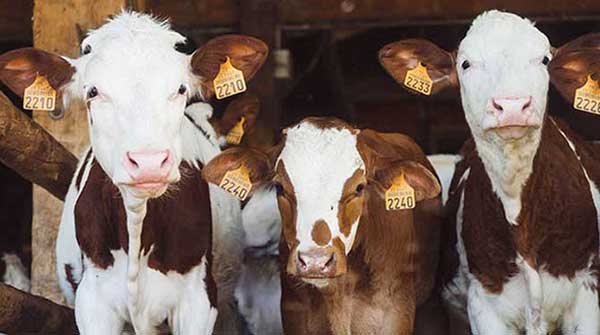 Agriculture and Agri-Food Minister Marie-Claude Bibeau chose a Saturday, hours before a long-awaited federal economic update, to offer more non-COVID-19-related compensation to Canada’s supply-managed farmers. Eighty-one percent of dairy farmers are located in Quebec and Ontario.
Agriculture and Agri-Food Minister Marie-Claude Bibeau chose a Saturday, hours before a long-awaited federal economic update, to offer more non-COVID-19-related compensation to Canada’s supply-managed farmers. Eighty-one percent of dairy farmers are located in Quebec and Ontario.
Compensation was expected but how it was done was a little strange. Few in the industry knew what was going on before the announcement. And when giving money away, governments generally want as much press as possible.
Not this time.
It was done hours before Finance Minister Chrystia Freeland’s update on Canada’s dreadful deficit, due Monday. So one must wonder if these sums aren’t intended to be blended with other COVID-19-related expenditures.
| RELATED CONTENT |
| Dairy industry and government are milking unsuspecting consumers By Sylvain Charlebois |
| Milk prices rising: time to reform the Canadian Dairy Commission By Sylvain Charlebois |
| Canadians desperately need help to combat food inflation By Slyvain Charlebois |
What’s $2 billion in funding when the deficit is over $400 billion?
It’s just noise at this point and it all seemed strangely improvised.
Egg and poultry farmers are getting what was expected: $691 million over several years. This is compensation for recent concessions the federal government made with Europe and Asia when trade deals were ratified. These sectors are highly integrated and competitive, so funds will be used wisely.
But dairy farmers are getting a holiday bonus. Instead of waiting seven more years to get the $1.75 billion promised last year, they’ll receive the bulk of their compensation package by the end of 2023. Direct payments will be given, more than $50,000 per farm per year.
As an increasing number of Canadians try to make ends meet when feeding themselves and their loved ones during the pandemic, each of us is giving $36 to asset-rich dairy producers. The average dairy farm in Canada is worth almost $6 million.
That’s why the announcement was made so quickly and on the weekend.
Farmers in other sectors like grains – also affected by embargoes and other trade issues – still get nothing. And their farms aren’t worth nearly as much.
In the dairy sector, the ones directly affected by trade with Asia and Europe are processors and artisan cheese makers. Since we’re seeing more foreign products at retail, small artisan cheese makers, dairy processors, goat cheese makers and other Canadian-made specialty products are losing market share.
But with this announcement they still get nothing, not one dime. And that’s simply because they don’t benefit from an effective lobby like dairy farmers have. Dairy farmers have a marketing budget exceeding $130 million a year. Dairy Farmers of Canada is a monster organization, although very few Canadians appreciate this.
Supply management is designed to compensate farmers for actual losses. But when unpacking pricing formulas, compensation given to dairy farmers is purely based on hypotheticals. The potential losses are unclear, at best.
Our entire dairy production system will essentially be overcapitalized.
Make no mistake, this is about politics, pure and simple.
Funds should have been used to encourage some farmers to exit the industry right away to help the sector become more competitive.
But the funds will do the complete opposite and underperforming dairy farmers will remain in the system for a few more years. Canada may end up making too much milk and we’ll witness the horror of milk dumping yet again.
Aging farmers will eventually exit the industry but it’s an expensive way to run an exit program. So much waste.
Most people don’t understand how supply management works. Canadians see the system as an obscure method of keeping our country food secure. Bibeau, the federal minister in charge, clearly doesn’t understand the system. Neither do many other politicians, public servants and, yes, many dairy farmers.
Most dairy farmers just want a fair price for their milk and couldn’t care less about the system itself.
During the announcement press conference, a reporter asked how compensation levels were calculated. Bibeau could only say the formula was complicated.
In Canada, those who do understand how supply management works are trade negotiators. They understand the politics of it. To sign trade deals, negotiators needed to buy peace with supply-managed sectors, especially dairy. Canada offered to make concessions, not the other way around.
And we’re not done. Ottawa is still on the hook for compensating farmers for the new North American trade deal. Stay tuned.
For dairy farmers, trade deals are a gift that keeps on giving.
Dr. Sylvain Charlebois is senior director of the agri-food analytics lab and a professor in food distribution and policy at Dalhousie University.
For interview requests, click here.
The opinions expressed by our columnists and contributors are theirs alone and do not inherently or expressly reflect the views of our publication.
© Troy Media
Troy Media is an editorial content provider to media outlets and its own hosted community news outlets across Canada.


